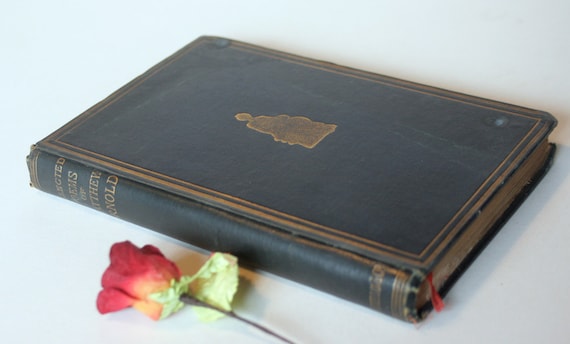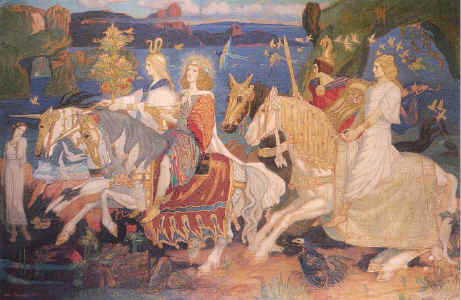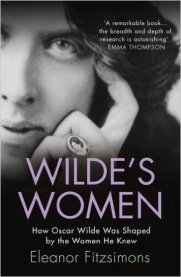
On 2 October 1879, Oscar Wilde sent a gift to his young friend Helena Sickert, aged sixteen. It was a copy of Selected Poems of Matthew Arnold, inscribed to ‘Nellie Sickert, from her friend Oscar Wilde’; he described it in the letter he enclosed with the package:
Dear Miss Nellie,
Though you are determined to go to Cambridge, I hope you will accept this volume of poems by a purely Oxford poet. I am sure you know Matthew Arnold already but still I have marked just a few of the things I like best in the collection, in the hope that we may agree about them. ‘Sohrab and Rustom’ is a wonderfully stately epic, full of the spirit of Homer, and ‘Thyrsis’ and ‘The Scholar Gypsy’ are exquisite idylls, as artistic as ‘Lycidas’ or ‘Adonais’: but indeed I think all is good in it.”
Oscar encouraged Helena’s love of poetry and had recited his poem ‘Ravenna’ to her as they sat beneath the gnarled and fragrant apple trees at her home in Neuville near Dieppe in the summer of 1878.
During that holiday, he also invented, ‘poetical nonsense of exactly the right blend’ for her little brothers, Oswald aged seven and Leo, aged five, before joining in with the rough and tumble of their games, as he would one day with his own two sons.
Struck by his unfailing ‘joyousness’, Helena would later recall:
I have never known any grown person who laughed so wholeheartedly and who made such mellow music of it.
When the Sickerts moved to London, Oscar became a welcome visitor who ‘poured out the riches of his talk’ for hours at a time. In her memoir, I Have Been Young, Helena conjured up those delightful days, writing:
When I try to recapture the enchantment I see the big indolent figure, lounging in an easy chair, his face alive with delight in what he was saying, pouring out stories and descriptions whose extravagance piled up and up till they toppled over in a wave of laughter….I can’t remember any of his countless witty sayings, but his laughter I shall hear till I die. His extravaganzas had no end, his invention was inexhaustible, and everything he said was full of joy and energy.
She recognised that the only stimulus Oscar needed to tell a story was to be in the company of good listeners, and she describes him:
…his indolent figure, lounging in an easy chair, his face alive with delight in what he was saying, pouring out stories and descriptions, whose extravagance piled up and up.
Once, when she allowed her scepticism to show, he enquired playfully: ‘You don’t believe me, Miss Nelly? I assure you… well, it’s as good as true.’

Helena Sickert, later Swanwick, went on to have a long and very remarkable life…but that’s another story.
Sources:
H. M. Swanwick, I Have Been Young (London: Victor Gollancz, 1935), p.65
The Complete Letters of Oscar Wilde. Eds: p.83
Wilde’s Women: How Oscar Wilde was shaped by the women he knew by Eleanor Fitzsimons















